Blurring the lines with Denisse Ariana Pérez
By Johanna Kamradt, 26 November 2024
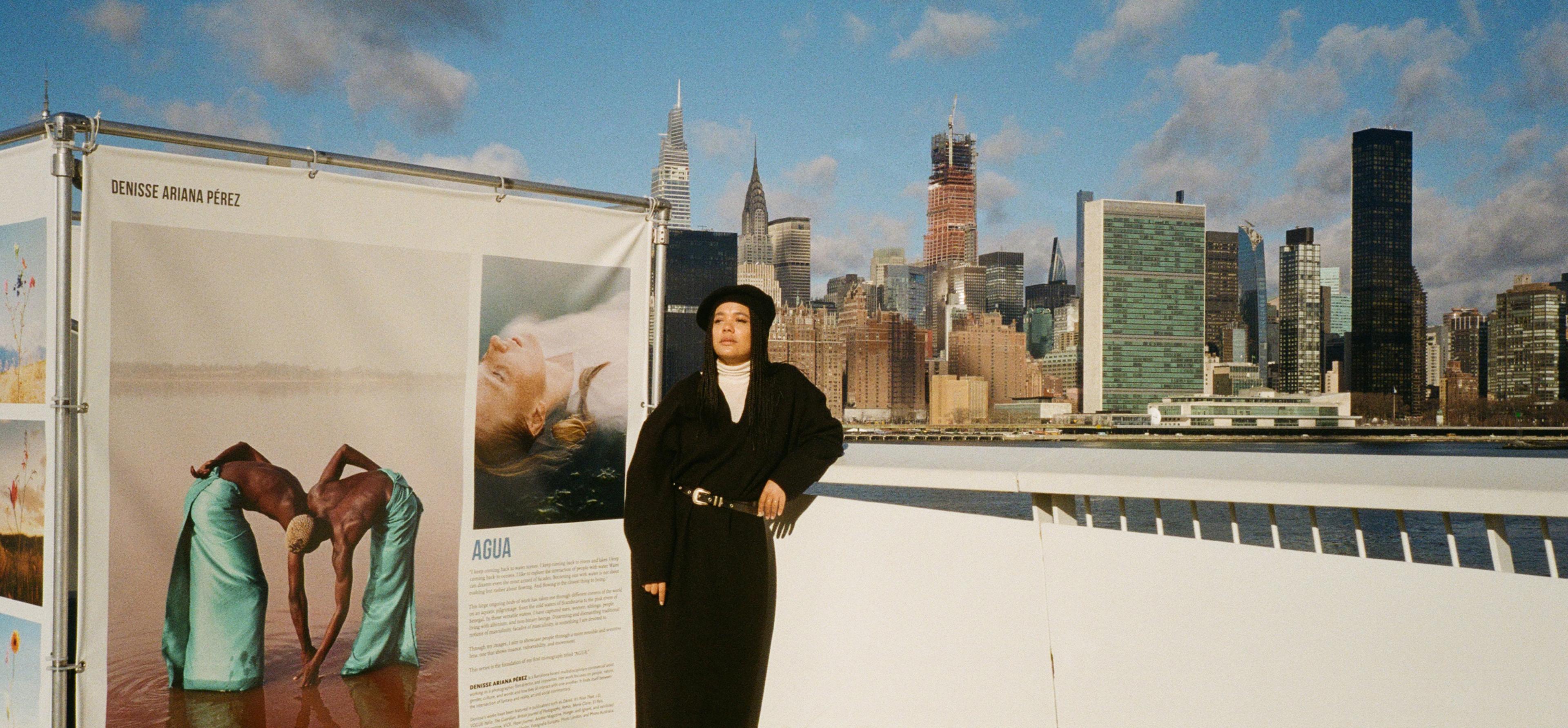
For this instalment of Noerd Alert, we speak to multidisciplinary artist Denisse Ariana Pérez. The Barcelona-based creative bridges photography, writing, directing, and strategy, with a number of international exhibitions and published works to her name. In her conversation with Noerd’s Johanna Kamradt, Denisse discusses her penchant for storytelling, her favourite ways of working, and the importance of mixing multiple mediums.
JK: I have so much I want to chat about with you. It was almost a year ago exactly when your name kept popping up for me, after various friends in Berlin raved about your Fotografiska exhibition. While the exhibit had already travelled from Stockholm to New York, it wasn’t limited to photography in Berlin, including your short film, A Poetic Lesson on Black Anatomy. When your work travels, is there a palpable difference in how the audience reacts to it?
DP: Oh definitely. Berlin was very unique, because it coincided with the opening of this new space, which used to be an epicentre for anarchistic artists in Berlin, a place that squatters fought to preserve. So there were some political undercurrents to it. It’s not just about individual context; your work is collectively perceived and interrogated, and it resonates more with certain communities than others.
JK: Is there a crystallised moment from your childhood that laid the path for what you do now?
DP: I was a very mathematical child. I would beg my Math teacher for extra homework. But, at the same time, I always did art. Some people might find it odd that I do so many different things – commercial work, copywriting, communications strategy – at the same time as my art, but I’ve always been like this. Proclaiming myself as a multidisciplinary creative has been the most honest evolution of who I was as a kid.
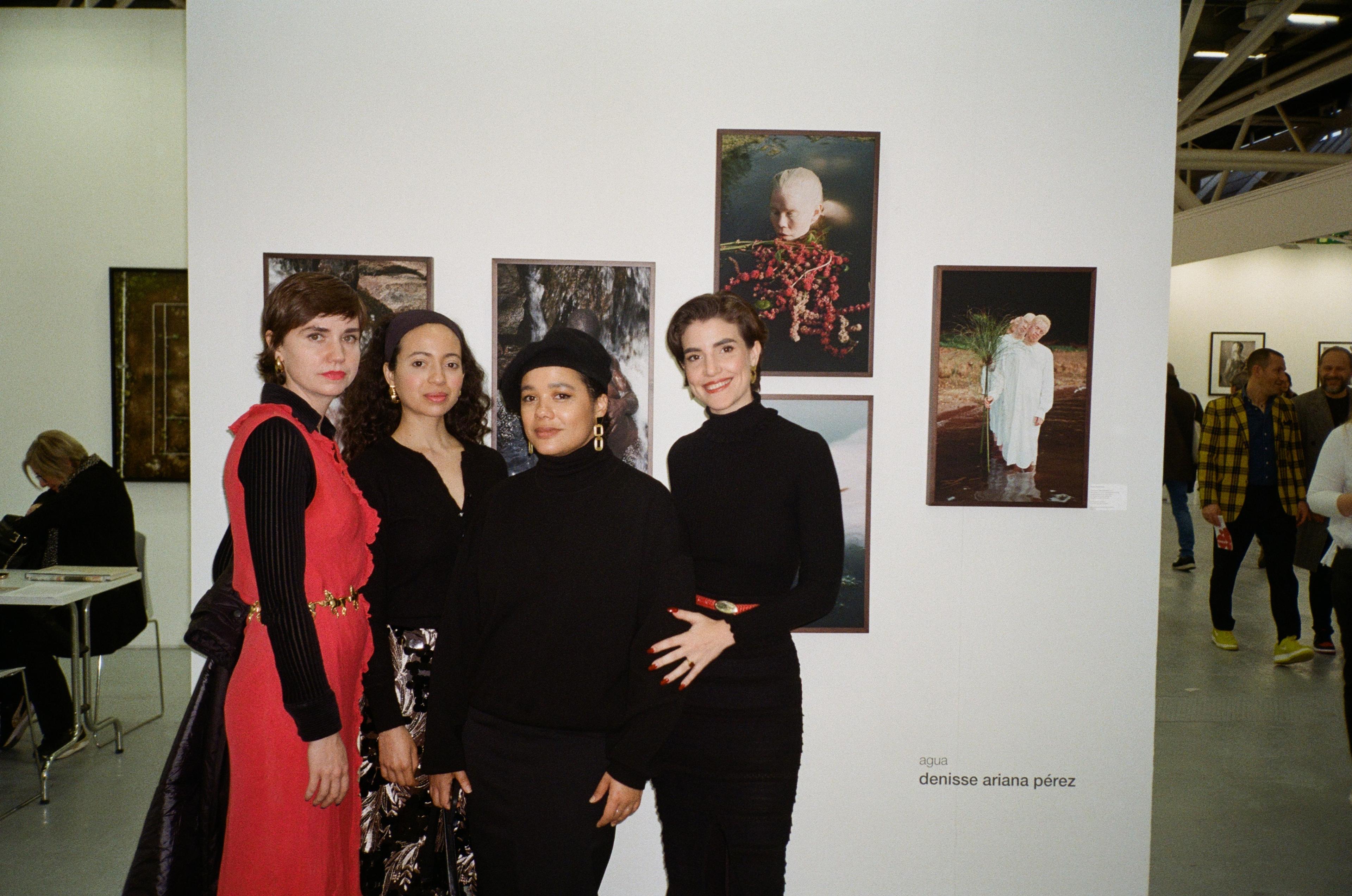
Copyright © Denisse Ariana Pérez
JK: In recent years, the world at large has become less perplexed by multi-hyphenates, and you need to do less explaining why one profession or talent feeds into another.
DP: For sure. In the years since the start of the pandemic, there has been less resistance towards that. Before then, I lost jobs because certain Creative Directors wanted all of my creative energy to focus on the agency or brand. I didn’t want to work for someone who didn’t see the value in me developing my own voice. There’s more openness and understanding of that now. Freelancers can do a great job on a project, but also use their creative energy to shine in other areas.
JK: I agree – I think witnessing a way in which you don’t want to work is crucial in crystallising what you do want, especially at the beginning of your career.
DP: 100%. And use the lessons as a reference for the day when you can choose which type of people you want to work with.
JK: I imagine you have those people in mind when you’re directing a shoot, putting together a team for a project.
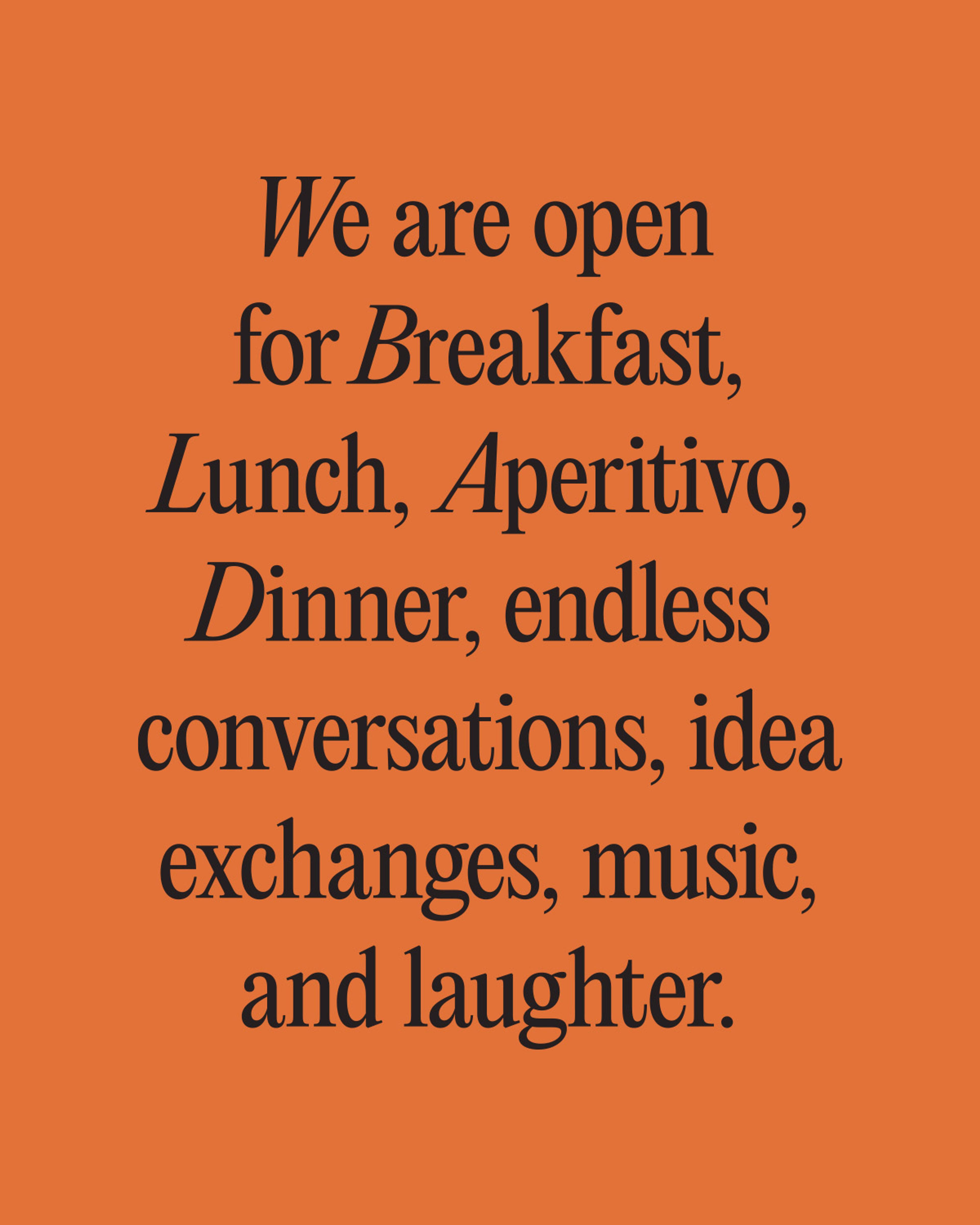
Copyright © Denisse Ariana Pérez, from recent project "Ela Restobar"
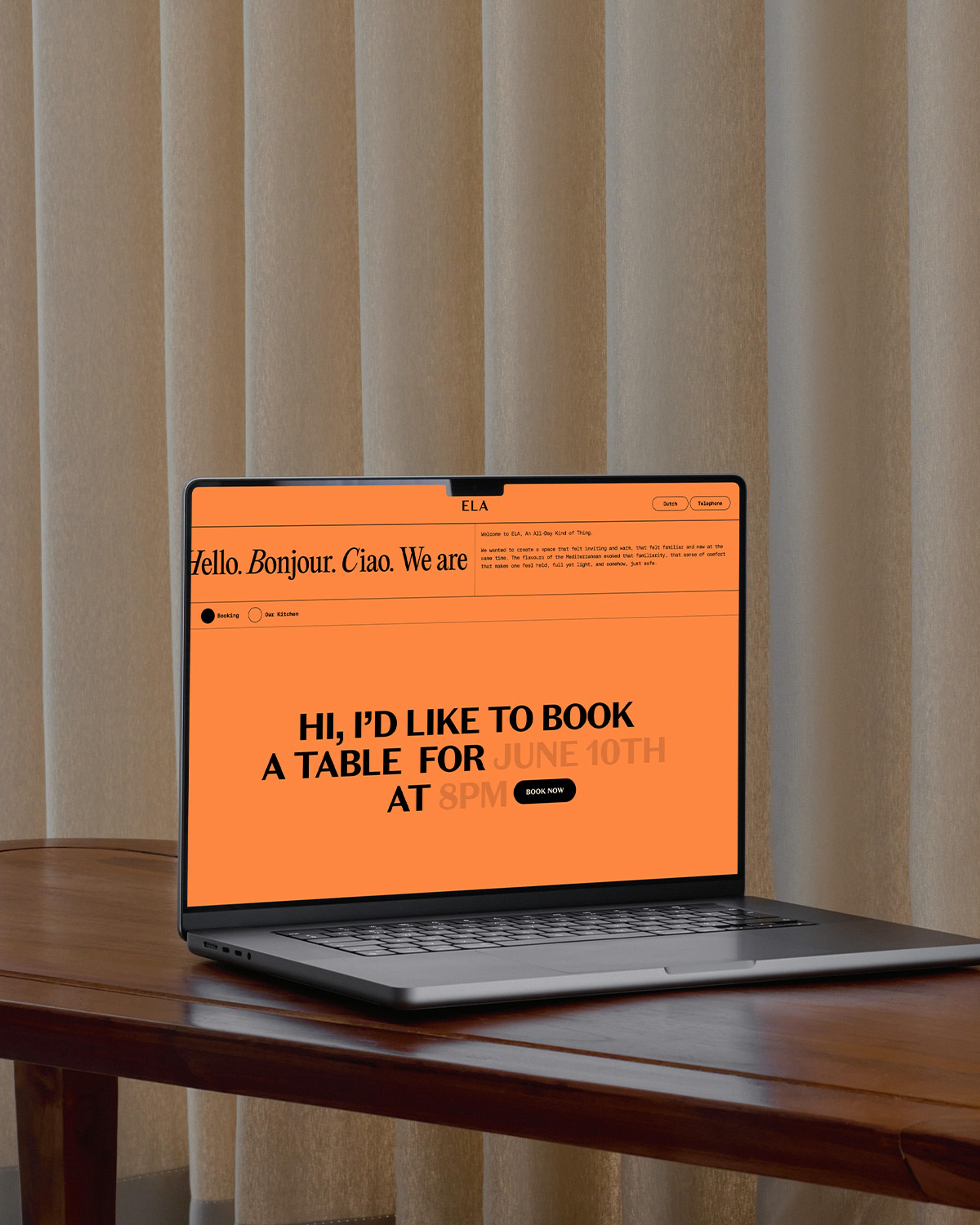
Copyright © Denisse Ariana Pérez, from recent project "Ela Restobar"
DP: Oh, absolutely. Working for those types of people has really made me focus on being as empathetic and inclusive as I can be. I also think that every photographer should try being the subject of a shoot at some point, in order to be more empathetic towards what a model goes through. I often shoot people who aren’t professional models, so I need to be able to allow them to trust my direction.
“I think that every photographer should try being the subject of a shoot at some point.”
JK: How do you approach building trust around movement, with people who aren’t professional models?
DP: The trust starts in the way I introduce myself, in the way that I tell them what I would like to do, and how I want to bring them along. Once they start moving, they begin to let go. Establishing trust is an important part of my process. It’s the same way I treat a more corporate job, or strategy work; whether it’s an artist or the C-suite.
JK: That’s a very human-centric approach.
DP: Totally. And I’ve experienced so many non-human-centric approaches! I’ve learned what it is that I don’t want to perpetuate.
JK: With your many disciplines, is there a way for you to clearly delineate between what is work and what is not?
DP: That’s an interesting question. Recently, I was working on a written project for a brand where the founder referenced my first photo book to me, AGUA, because she loved the tone of voice and wanted to emulate something similar, through the lens of the brand. So while it’s a piece of work that I was commissioned to do, it also just felt good to create it.
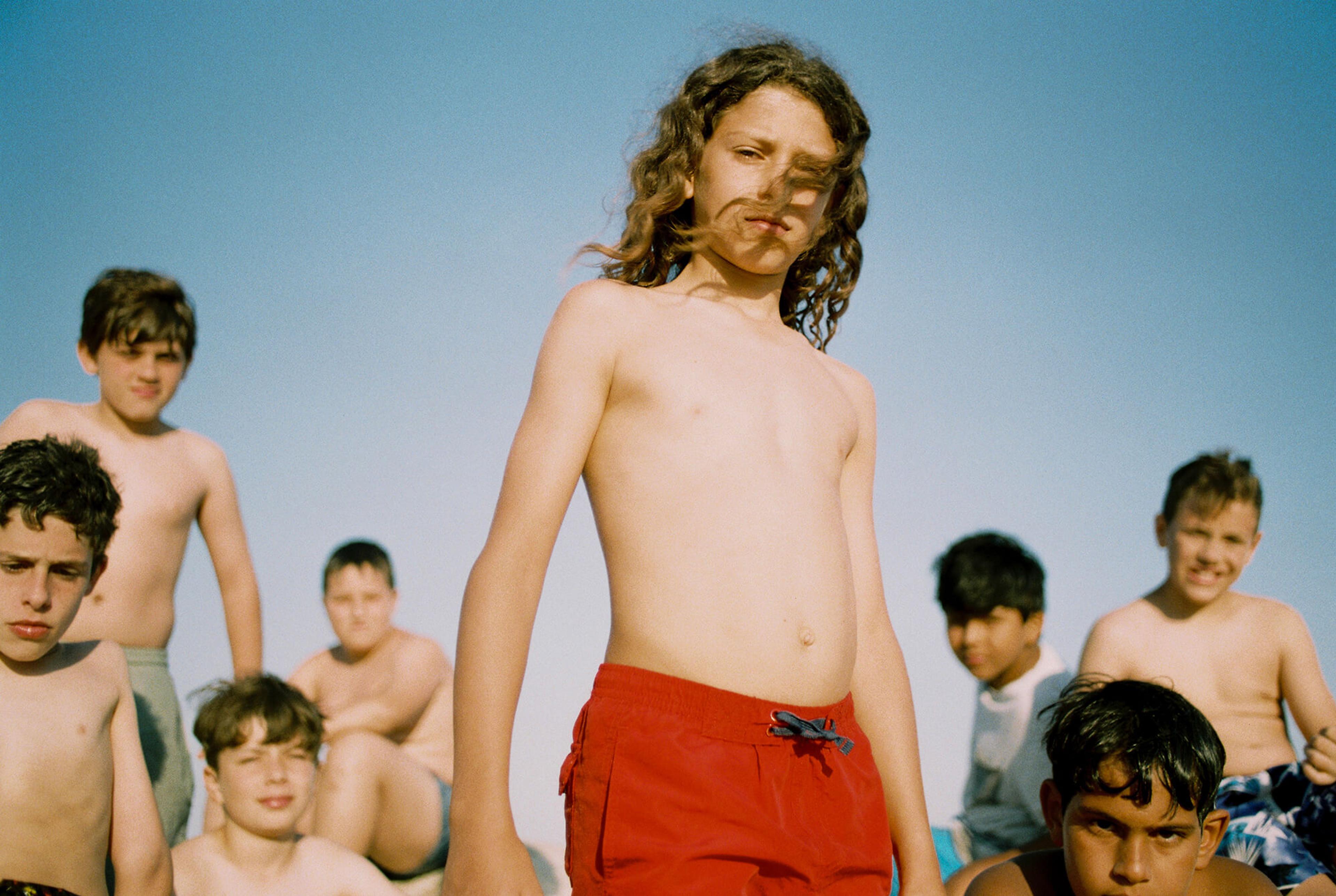
Copyright © Denisse Ariana Pérez
“Establishing trust is an important part of my process.”
I also love to solve a problem; it’s that mathematical side of me, I love a hard work equation. That also doesn’t feel like work.
On the other hand, there was a long period of time where I didn’t enjoy writing “just for myself”. I felt this nonsensical pressure, even without an audience. But now I find such joy in keeping a diary. It’s so liberating, just a free-flowing space where I can play and express myself freely..
When I hold a camera, I like to infuse myself in the creative process. I never lose my sense of self – I pour a little bit of myself into every project I’m part of, and in that way, it never purely feels like work.
I think some artists are very happy to “just” create their own stuff, but I really enjoy creating for and with other people. I learn a lot from working on projects for others.
JK: That also feeds into what you were saying about solving problems – that occurs much more when it isn’t your own creation.
DP: 100%. It makes me step outside myself, and focus on problems that aren’t mine. You keep one foot in culture when you collaborate with others. I like to be consistently connected with the world, learn from it, evolve with it.
JK: There’s also such value in creating the change you want to see, particularly in more corporate settings.
DP: Oh, definitely. I really try to influence brands to be a little more intentional. The work I create personally certainly has that impact, but when you’re working with certain clients, you have a much larger audience, and there’s huge value in the impact you can have.
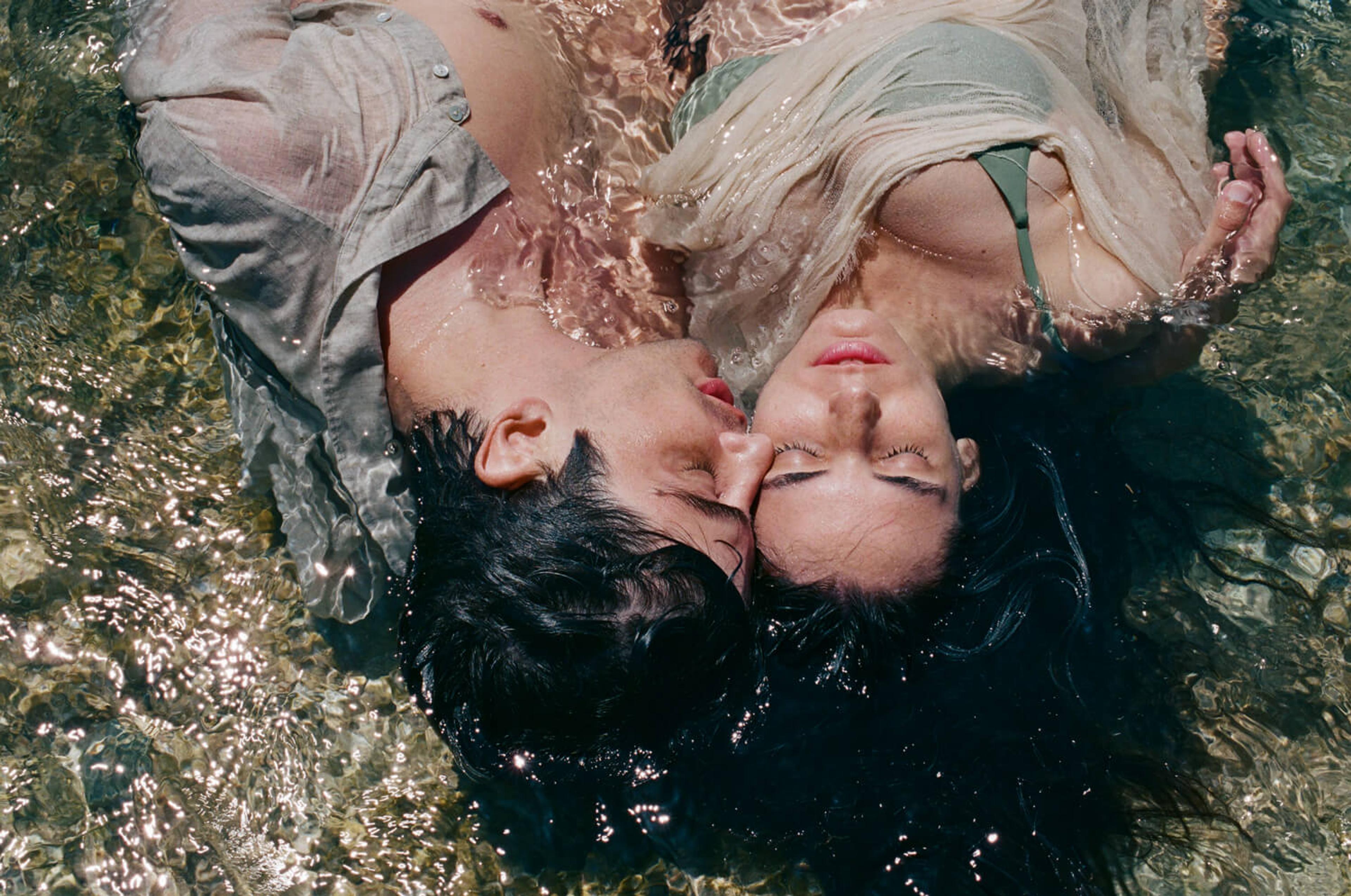
Copyright © Denisse Ariana Pérez
JK: You mentioned your photo book earlier – what did you take away from that process?
DP: I’ve published two books so far – the first one is like a little manifesto, called Democratize Creativity. It’s like a middle finger to whoever told you that you’re not creative enough. It criticises the creative industry for separating people into “creatives” and “non-creatives.”
“I really try to influence brands to be a little more intentional.”
My next published project was online, a digital book of poems called Inside the Head. As exciting as print is, there are limitations to the form, and with this project, I cared more about people having access to the message than selling copies. My latest book is a physical photo book, which again is entirely different. Art books are more of an investment, as they’re so expensive to make.
It’s just different mediums, you know? Everything has its own place. And sometimes I can’t help but think of the waste of paper with physical books. I want whatever I’m printing to be wholly intentional. Some things should maybe be a TED talk instead of a book, you know? Or a newsletter. And that’s fine. Not everything needs to be in print. One isn’t worse than the other, they just have different roles.
JK: And in the same way that there’s something archaic about differentiating between creatives and non-creatives, there’s something very archaic about giving more value to something printed versus something digital.
DP: Yeah. Hopefully it evolves.
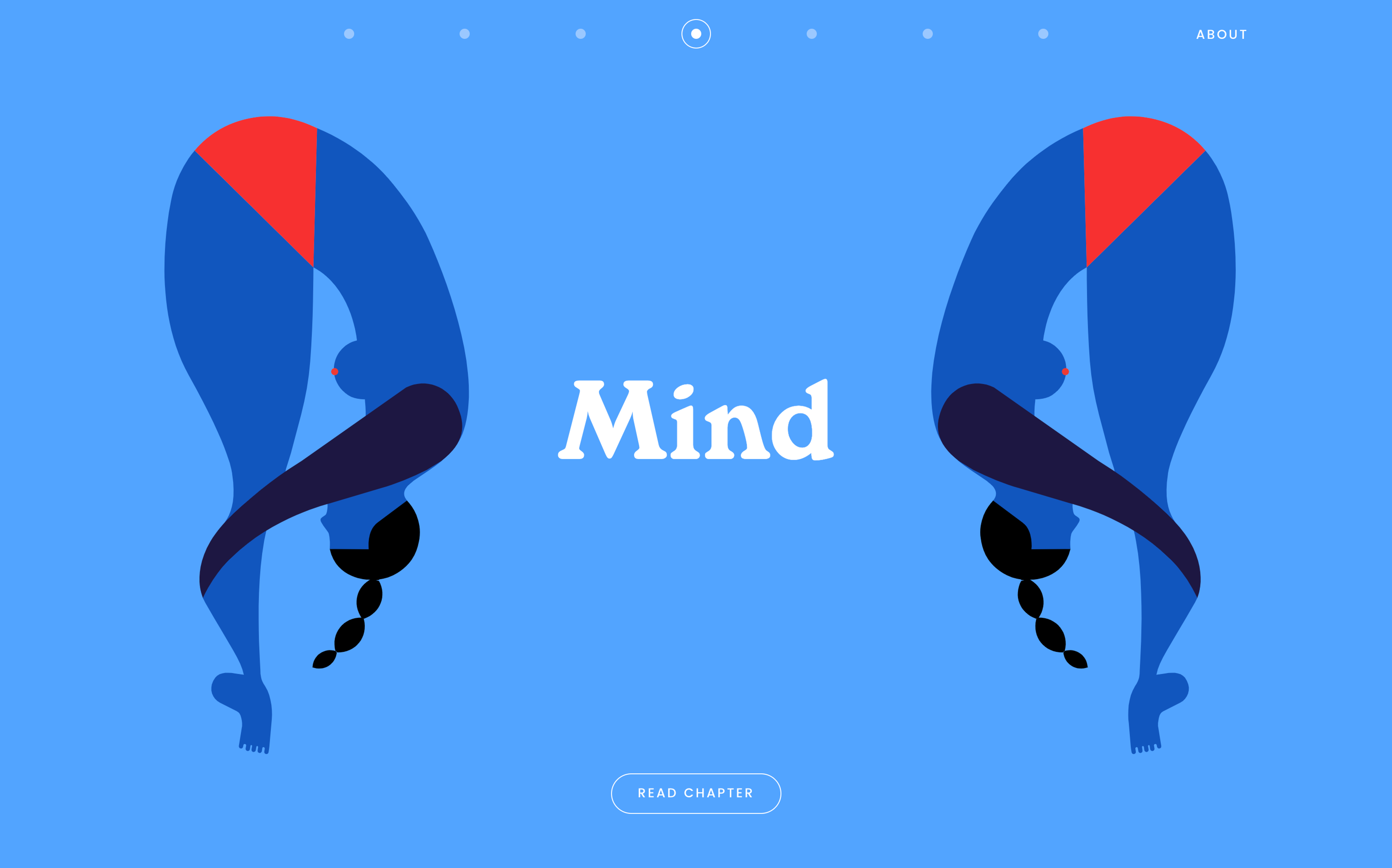
Copyright © Denisse Ariana Pérez, from project "Inside the Head"
JK: Do you find that you’re more interested in the process or the end result?
DP: When it comes to photography, I very much enjoy the process more. That’s a big reason why I mostly shoot analog. It creates a space in which I cannot control what’s happening, because I can’t see the result. We just have to be present. And I know when “it” happens; I know it the moment I click the shutter. Not because I see the end result, but because the person in front of me completely lets go, they completely surrender.
It’s different with filmmaking. I cannot take the risk of it not formalising in the way I intend it to, because the process is so much more complex. So the end result is more rewarding there. And with writing, it’s all about the process for me. I like to tap into a different voice.
JK: What type of work do you currently most enjoy?
DP: I’m really enjoying the multi-dimensional aspect of film, that you can witness it with your eyes opened or closed. Like my short films, Tide In, Tide Out, and A Poetic Lesson on Black Anatomy; the message and the visual can both exist independently.
I also like work that defies established structures – what is “commercial”, what is “artistic.” I just love blurring those lines. I also love projects that force me to do research, transforming specific insights into something that can hold universal truths. I really like investigating, because it teaches you to develop empathy.
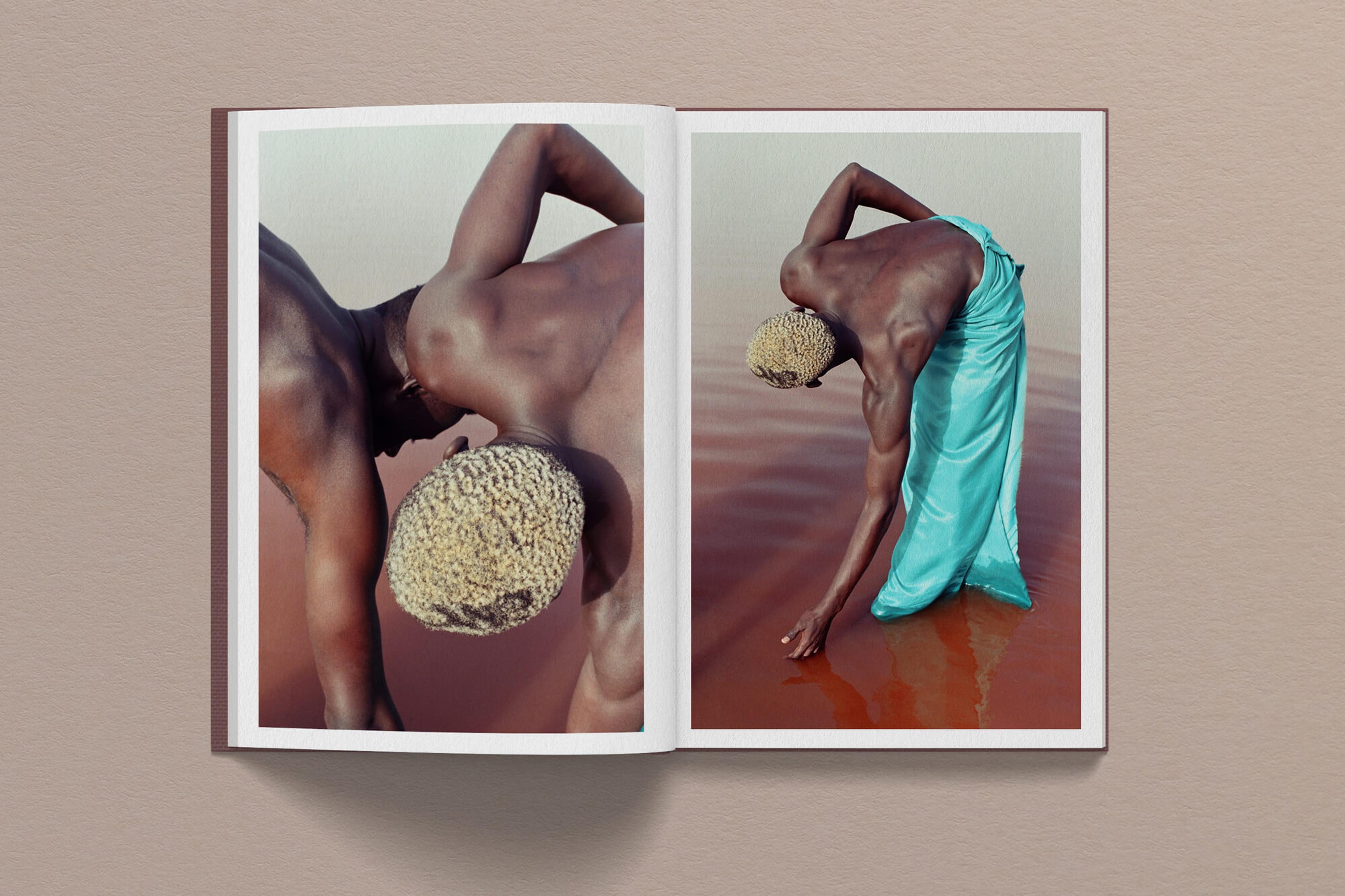
Copyright © Denisse Ariana Pérez
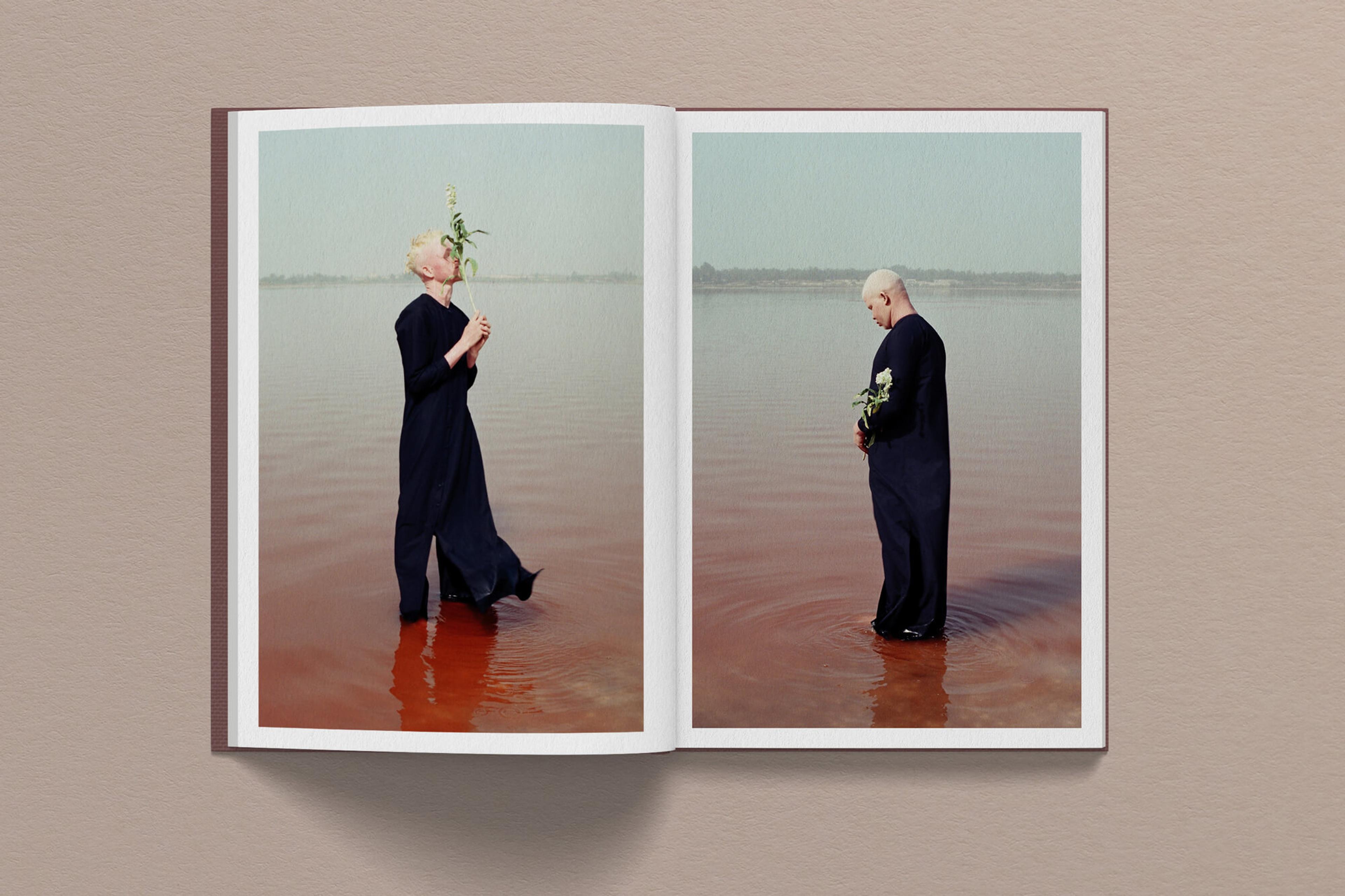
From her series "Agua".
JK: You’ve lived in many different cities – how has that influenced your work?
DP: I’ve lived in places like Bern, New York, Stockholm, Copenhagen, now Barcelona, but I’ve always travelled a lot, too, so I’ve been lucky to have broad influences. I make a conscious effort to observe culture that is outside of the western sphere. It’s really important to me to explore marginalised communities and cultures, particularly in Asia and Africa. Recently I was in Cote d’Ivoire, and I was just amazed by the creative scene there. There’s such an exciting wave of creativity.
Only you can hold yourself accountable to stay “in touch”. Even if it’s “just” digital, and you’re working with people in different cities and territories. If your connections are everywhere, so are you.
“I make a conscious effort to observe culture that is outside of the western sphere.”
JK: Do you have a preferred way to keep in touch with different creative communities?
DP: I think Instagram is very good for that. That’s the main reason I use it – for connections, for inspiration. That has led to a lot of great collaborations. If you’re proactive on those platforms, it can really bridge a physical gap. If I notice that a brand I like is following me, I’ll reach out.
JK: You can also gauge quite a bit about a person if you’re active on those sites – if I see that you, too, are following Beyoncé’s publicist, then I see you.
DP: [laughs] Exactly! Immediately.
JK: There’s such a red thread of storytelling throughout your work. Do you approach it differently for each medium?
DP: I always start with words. Even if it’s just keywords. I always need to find the main story I'm trying to tell. “What is the story” can be both the easiest and the hardest part. If you have a defined red thread, everything else flows.
JK: How do you deal with internal noise, when you’re creating – how do you silence it?
DP: Meditation helped me a lot with that. It doesn’t have to be a long process at all – it can be as simple as three breaths. And journaling also really helps, when it comes to limiting beliefs or negative voices. And therapy really helps, in knowing how to deal with challenges and hold yourself accountable.
JK: And if you’re feeling depleted, what do you turn to in order to regenerate?
DP: Meditation, for sure. Going to a museum or gallery always helps. Or, if I’m frustrated, I like working out. Kickboxing. Lifting heavy weights is very medicinal. Your thoughts suddenly become so small. I love yoga, but as women, we’ve been taught so much to calm down, just breathe, silence yourself. And I’m like, no – sometimes you need to release all that fire in you. In a very cathartic way!
I’ve started to bring my friends along to kickboxing and weightlifting, especially anxious ones, or if they’re going through a tough time. I’m like, I don’t just want you to feel zen – I want you to feel strong. Sometimes you forget your own strength. It’s so important to remind yourself of all the things you’re capable of.
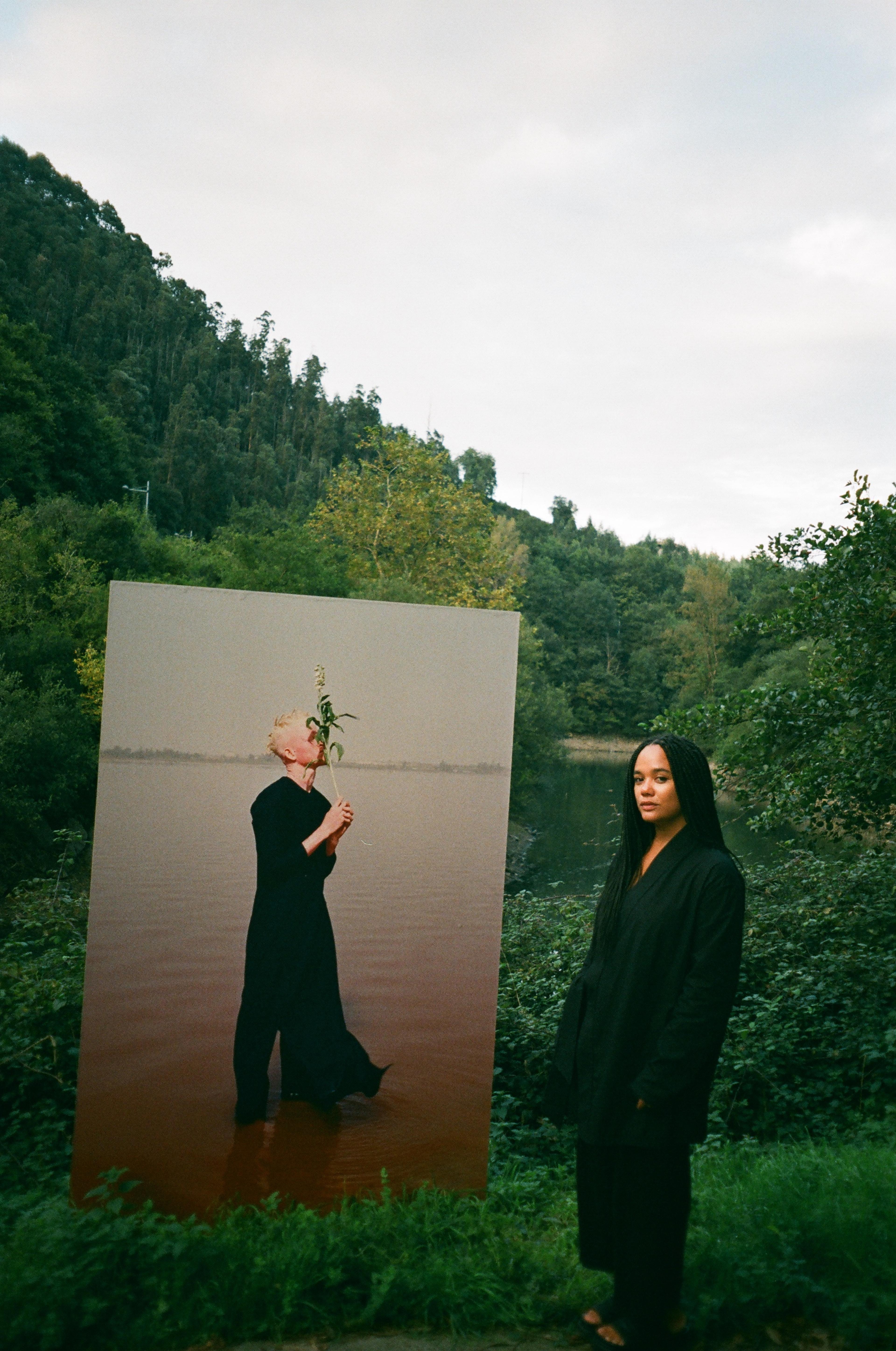
Copyright © Denisse Ariana Pérez
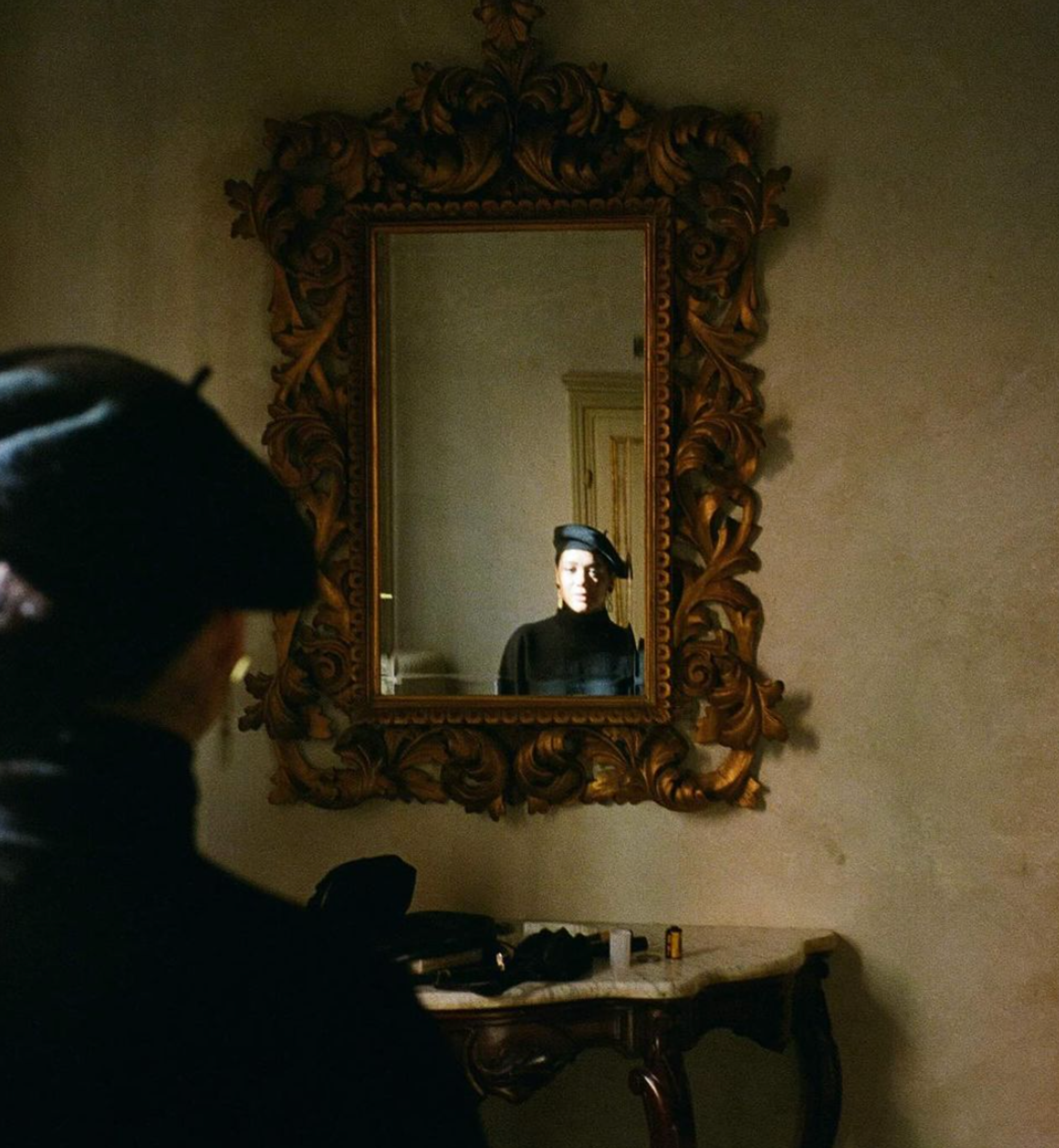

Quickfire Questions
What is your greatest extravagance?
I am that person who will go on a food tour by herself, or do a 9-dish tasting menu on her own.
Which talent would you most like to have?
I would love to be able to sing. I think it’s fascinating to create art, and your body being the instrument.
What sound do you love?
I love the sound of the wind as it makes tree leaves dance. I also love the music of Kamasi Washington, on repeat, and the god-like voice of Aretha Franklin.
Which piece of art most recently stuck with you?
Two films. The Eternal Memory by Maite Alberdi; I don’t think I’ve cried that much during or after a film in my whole life. This was one of the most beautiful love stories I’ve ever seen. The other is Four Daughters, one of the most creative, painful, and inspiring documentaries I’ve ever seen.
Who are your favourite writers?
Junot Diaz and Bernardine Evaristo. I love authors who play with language, who are not strictly orthodox with syntax, who create their own patois, blending prose, poetry, and slang. I also love Luvvie Ajayi Jones, because she blends sharp wisdom with sass and hilariousness. I love someone who is authentically bold and hilarious like that.
What is your current no-skips album?
Truth by Kamasi Washington.
What is your most-used emoji?
An equal trifecta of the white heart, the yellow spark, and the two hands together showing gratitude.
Which book have you gifted more than once?
All About Love by bell hooks, The Power of Now by Eckhart Tolle, and Professional Troublemaker by Luvvie Ajayi Jones.
What newsletter do you always open?
Emma Gannon’s The Hyphen and Leticia Sala’s Magical Thinking.
What is a historical instance you loved to have witnessed?
Obama’s first election win in 2008. I had just moved to New York that August, and I remember being in a room with international students from all over the world watching the results, and all of us feeling a deep sense of joy and hope.
Which podcasts do you stay up-to-date with?
The Daily by the New York Times, Global News by the BBC, Professional Troublemaker by Luvvie Ajayi Jones (I especially recommend the most recent season on the struggles of entrepreneurship), Diary of a CEO, On Purpose by Jay Shetty, The Courage of Being You by Nora Navarro.